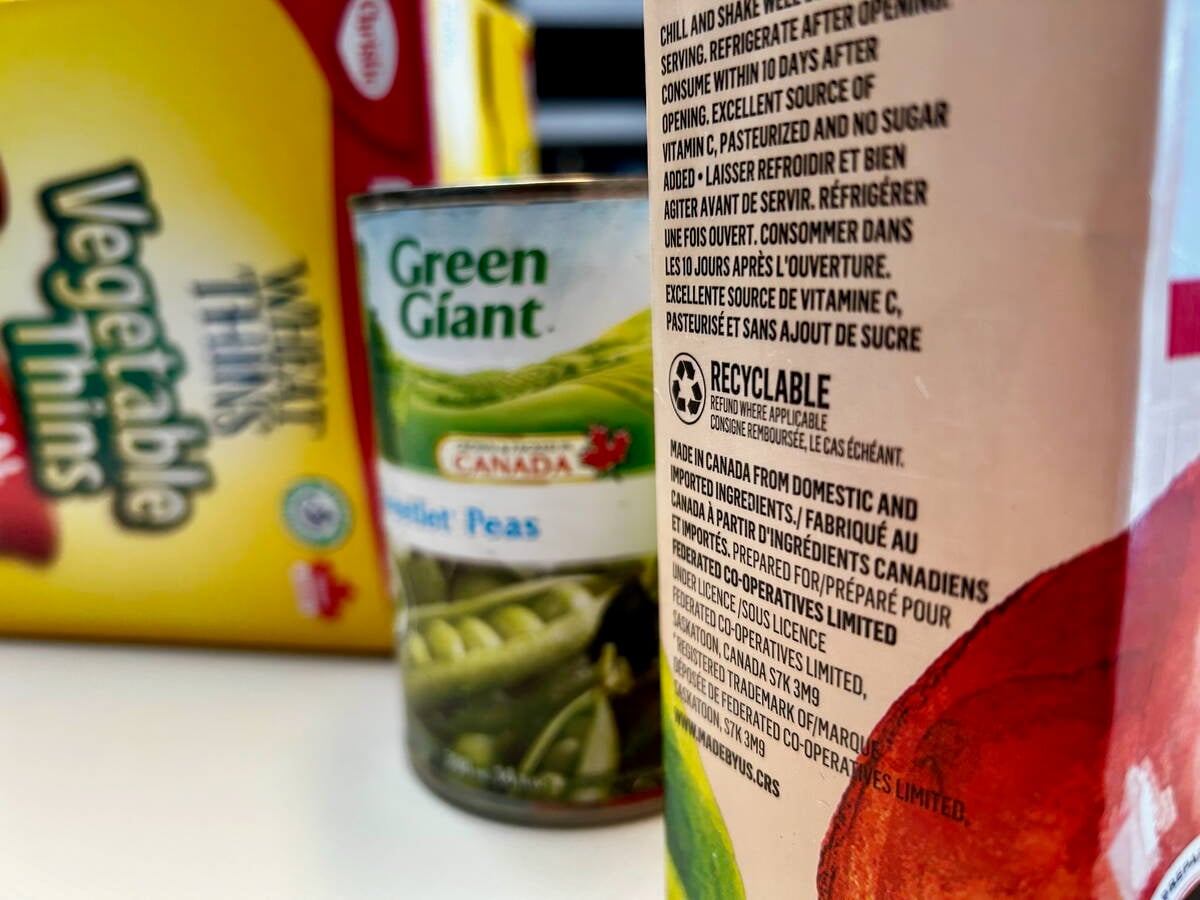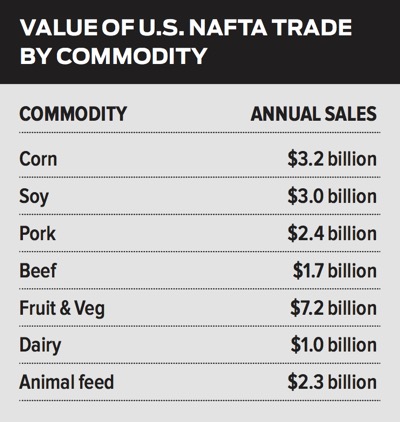Dear Secretary Ross:
We are writing to respectfully share information relevant to your recent observation that there is “not a world oversupply of agricultural products” and that harm to American food and agriculture interests from a potential NAFTA withdrawal is an “empty threat.”
We recognize that the North American Free Trade Agreement (NAFTA) has not benefited some sectors as it has American food and agriculture. The food and agriculture industry is the heart of rural America, providing employment all along the value chain, including associated industrial and manufacturing industries, to ensure that U.S. and global consumers have access to high-quality, safe, and affordable food and agricultural products.
Read Also

Unclear food labels hinder Canada’s ‘buy local’ surge
“Maple-washing” on Canadian food packaging makes label claims hard to keep straight and hurts both farmers and consumers trying to buy Canadian, economist says.
We respectfully submit that notification of NAFTA withdrawal would cause immediate, substantial harm to American food and agriculture industries and to the U.S. economy as a whole. Under NAFTA, American food and agriculture exports to Canada and Mexico grew by 450 per cent. In 2015, the United States held a 65 per cent market share for agriculture products in the NAFTA region, and in 2016, we exported nearly $43 billion (all figures U.S. funds) worth of food and agriculture goods to Canada and Mexico, making our NAFTA partners the largest export consumers of U.S. agriculture.
According to a study by ImpactECON, if Canada, Mexico, and the United States return to “most favoured nation” (MFN) tariff rates upon any withdrawal from NAFTA, the negative impact on the United States will far outweigh any benefits from higher U.S. tariffs, including a net loss of 256,000 U.S. jobs, a net loss of at least 50,000 jobs in the U.S. food and agriculture industry, and a drop in GDP of $13 billion from the farm sector alone. NAFTA withdrawal would also disrupt critical industry supply chains, close markets, eliminate jobs, and increase prices for the basic needs of American consumers.
Of course, market conditions change over time and we submit that long-term trade relationships should not be based on temporary market conditions. The adverse effects of issuance of a notice of NAFTA withdrawal would be abrupt and particularly severe for America’s farmers, food manufacturers, and agribusinesses. For instance, the world grain market currently is experiencing the greatest oversupply of production since the 1980s – with the U.S. facing increasing competition from foreign competitors – and net U.S. farm income has declined to half what it was just five years ago. 2018 would be an especially damaging time to lose America’s two largest food and agriculture product markets.
Agricultural exporters from Brazil and Argentina, especially, are already moving aggressively to take advantage of the perceived opportunity to access our North American markets due to NAFTA negotiation rhetoric. In addition, the European Union is aggressively negotiating an updated FTA with Mexico to expand its sales there by seeking reduced Mexican tariffs on competitive EU export areas and the incorporation of rules creating de facto barriers to trade to advantage those products at the expense of U.S. suppliers. We trust you appreciate how harmful it would be for the U.S. to become the supplier of last resort of major commodities. Accordingly, we submit that it is imperative that America preserve and grow access to markets like Mexico and Canada where we have a competitive advantage over other global suppliers, notably integrated supply chains facilitated by over 7,450 miles of shared borders.
 Notice of withdrawal from NAFTA would result in substantial harm to the U.S. economy generally and food and agriculture producers, in particular. While it has been asserted that negotiations could be completed and a new agreement approved subsequent to issuance of notice of withdrawal, but prior to actual withdrawal, that observation gravely underestimates the business complexity and contracting periods involved. We are sadly confident that issuance of a notice of withdrawal from NAFTA would trigger a substantial, immediate response in commodity markets as market-specific focus would turn to a scheduled return to trade-prohibitive tariff rates. Contracts would be cancelled, sales would be lost, able competitors would rush to seize our export markets, and litigation would abound even before withdrawal would take effect.
Notice of withdrawal from NAFTA would result in substantial harm to the U.S. economy generally and food and agriculture producers, in particular. While it has been asserted that negotiations could be completed and a new agreement approved subsequent to issuance of notice of withdrawal, but prior to actual withdrawal, that observation gravely underestimates the business complexity and contracting periods involved. We are sadly confident that issuance of a notice of withdrawal from NAFTA would trigger a substantial, immediate response in commodity markets as market-specific focus would turn to a scheduled return to trade-prohibitive tariff rates. Contracts would be cancelled, sales would be lost, able competitors would rush to seize our export markets, and litigation would abound even before withdrawal would take effect.
Therefore, we respectfully ask that the administration continue to seek positive engagement that would advance America’s economic interests by opening new export opportunities and by tackling non-tariff concerns our industries have identified. That forward progress must begin by maintaining the “do no harm” pledge toward food and agriculture trade within NAFTA renegotiation.
This letter, which has been edited for length, was signed by more than 80 U.S. commodity organizations and agriculture and food-related businesses.

















